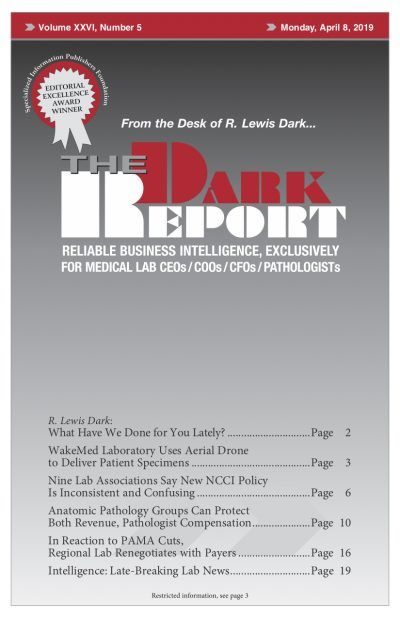CEO SUMMARY: By its name alone, the National Correct Coding Initiative (NCCI) Policy Manual implies that it will be accurate and consistent with other coding initiatives. But nine groups representing various clinical laboratories say NCCI guidelines that the federal Centers for Medicare and Medicaid Services issued in December and implemented on Jan. 1 are inconsistent …
Nine Lab Groups Say New NCCI Policy Is Inconsistent Read More »
To access this post, you must purchase The Dark Report.


